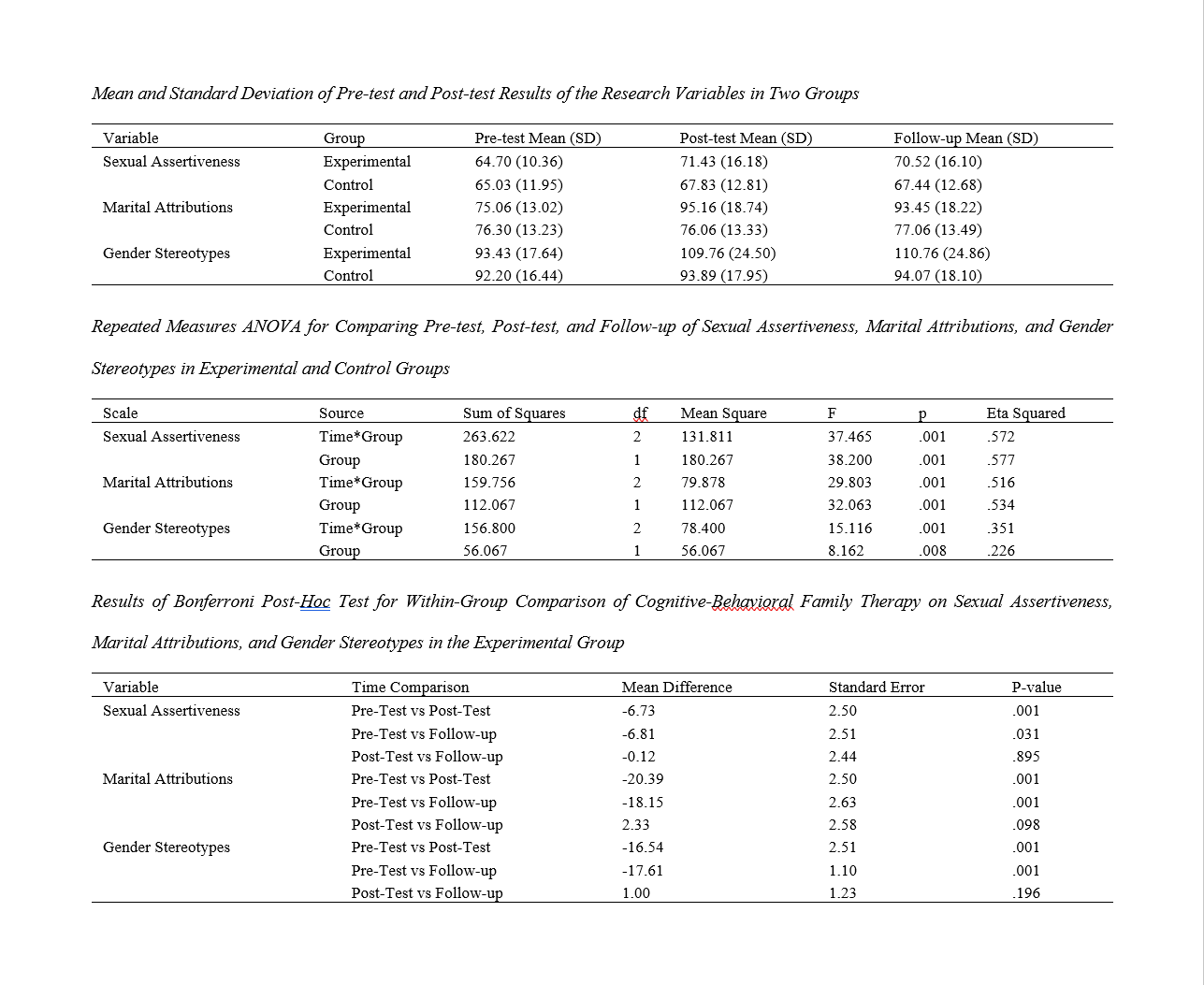The Effectiveness of Cognitive-Behavioral Family Therapy on Marital Attributions, Sexual Assertiveness, and Gender Stereotypes with Insecure Attachment Styles in Rasht
Keywords:
marital attributions, sexual assertiveness, gender stereotypes, insecure attachment styleAbstract
Objective: The present study aimed to evaluate the effectiveness of cognitive-behavioral family therapy on marital attributions, sexual assertiveness, and gender stereotypes with insecure attachment styles in Rasht.
Methods: This study was a quasi-experimental research with a pre-test, post-test, and follow-up design including a control group. The statistical population consisted of all student couples with insecure attachment styles in Rasht in 2023. A total sample of 30 couples (15 couples per experimental and control group, each group consisting of an equal number of couples with insecure attachment styles) was selected through purposive sampling after meeting the inclusion criteria. The questionnaires used to collect data from the sample group included: Griffin and Bartholomew's Relationship Scales Questionnaire (1994), Fincham and Bradbury's Marital Attributions Questionnaire (1992), Bem's Gender Stereotypes Questionnaire (1974), and Halbert's Sexual Assertiveness Questionnaire (1992). Statistical data analysis was performed using repeated measures analysis of variance with SPSS software.
Findings: The results showed a significant difference in the mean scores of marital attributions, sexual assertiveness, and gender stereotypes based on group membership (experimental and control) at the post-test stage (P<0.01).
Conclusion: It can be concluded that cognitive-behavioral family therapy is an effective method for addressing marital attributions, sexual assertiveness, and gender stereotypes in individuals with insecure attachment styles.
Downloads

Downloads
Additional Files
Published
Submitted
Revised
Accepted
Issue
Section
License

This work is licensed under a Creative Commons Attribution-NonCommercial 4.0 International License.




















